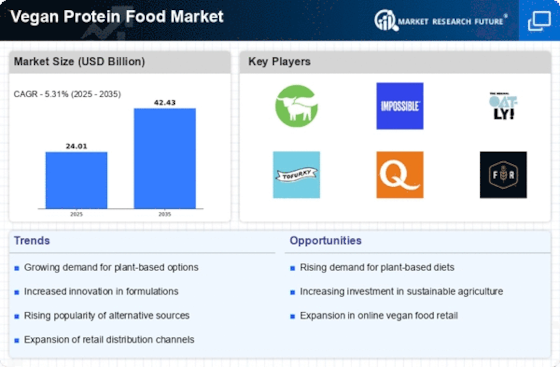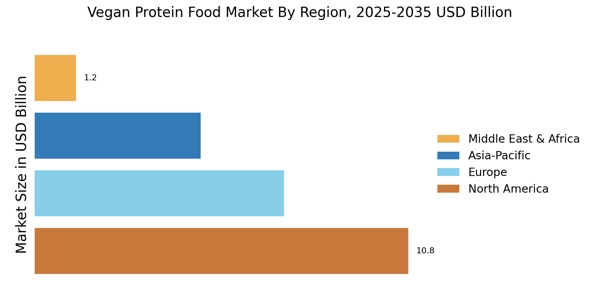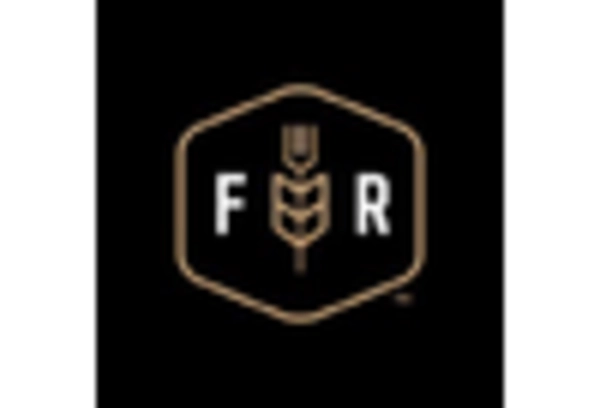Health Consciousness
The increasing awareness of health and wellness among consumers appears to be a primary driver for the Vegan Protein Food Market. As individuals seek to improve their diets, they are gravitating towards plant-based proteins, which are perceived as healthier alternatives to animal-based proteins. Research indicates that a significant portion of the population is now prioritizing protein sources that are lower in saturated fats and cholesterol. This shift is reflected in the growing sales of vegan protein products, which have seen a rise of approximately 20% in recent years. The Vegan Protein Food Market is thus benefiting from this trend, as consumers actively seek out nutritious options that align with their health goals.
Environmental Concerns
Environmental sustainability is increasingly influencing consumer choices, thereby driving the Vegan Protein Food Market. The adverse effects of animal agriculture on climate change, deforestation, and water usage have prompted many to reconsider their dietary habits. Studies suggest that plant-based diets can significantly reduce an individual's carbon footprint, leading to a surge in demand for vegan protein products. The market has witnessed a notable increase in sales, with projections indicating a potential growth rate of 15% annually. This heightened awareness of environmental issues is likely to continue shaping consumer preferences, further propelling the Vegan Protein Food Market.
Diverse Product Offerings
The expansion of diverse product offerings within the Vegan Protein Food Market is a crucial driver of its growth. Manufacturers are innovating to create a wide array of vegan protein products, including protein powders, bars, and ready-to-eat meals. This variety caters to different consumer preferences and dietary needs, making it easier for individuals to incorporate plant-based proteins into their diets. Recent data indicates that the introduction of new flavors and formulations has led to a 25% increase in market penetration. As consumers become more adventurous in their food choices, the Vegan Protein Food Market is likely to thrive, attracting a broader audience.
Influence of Social Media
The role of social media in shaping dietary trends cannot be overlooked, as it significantly impacts the Vegan Protein Food Market. Influencers and health advocates are increasingly promoting plant-based diets, showcasing the benefits of vegan protein products to their followers. This digital word-of-mouth marketing has proven effective in raising awareness and driving sales. Recent surveys indicate that nearly 40% of consumers are influenced by social media when making food choices. As this trend continues, the Vegan Protein Food Market is expected to experience accelerated growth, fueled by the power of online communities and shared experiences.
Regulatory Support for Plant-Based Foods
Regulatory frameworks that support the development and marketing of plant-based foods are emerging as a vital driver for the Vegan Protein Food Market. Governments are increasingly recognizing the health and environmental benefits of plant-based diets, leading to policies that encourage the production and consumption of vegan products. For instance, some regions have introduced subsidies for plant-based food manufacturers, which could enhance market accessibility. This regulatory support is likely to foster innovation and investment in the Vegan Protein Food Market, potentially resulting in a more robust and competitive landscape.


















